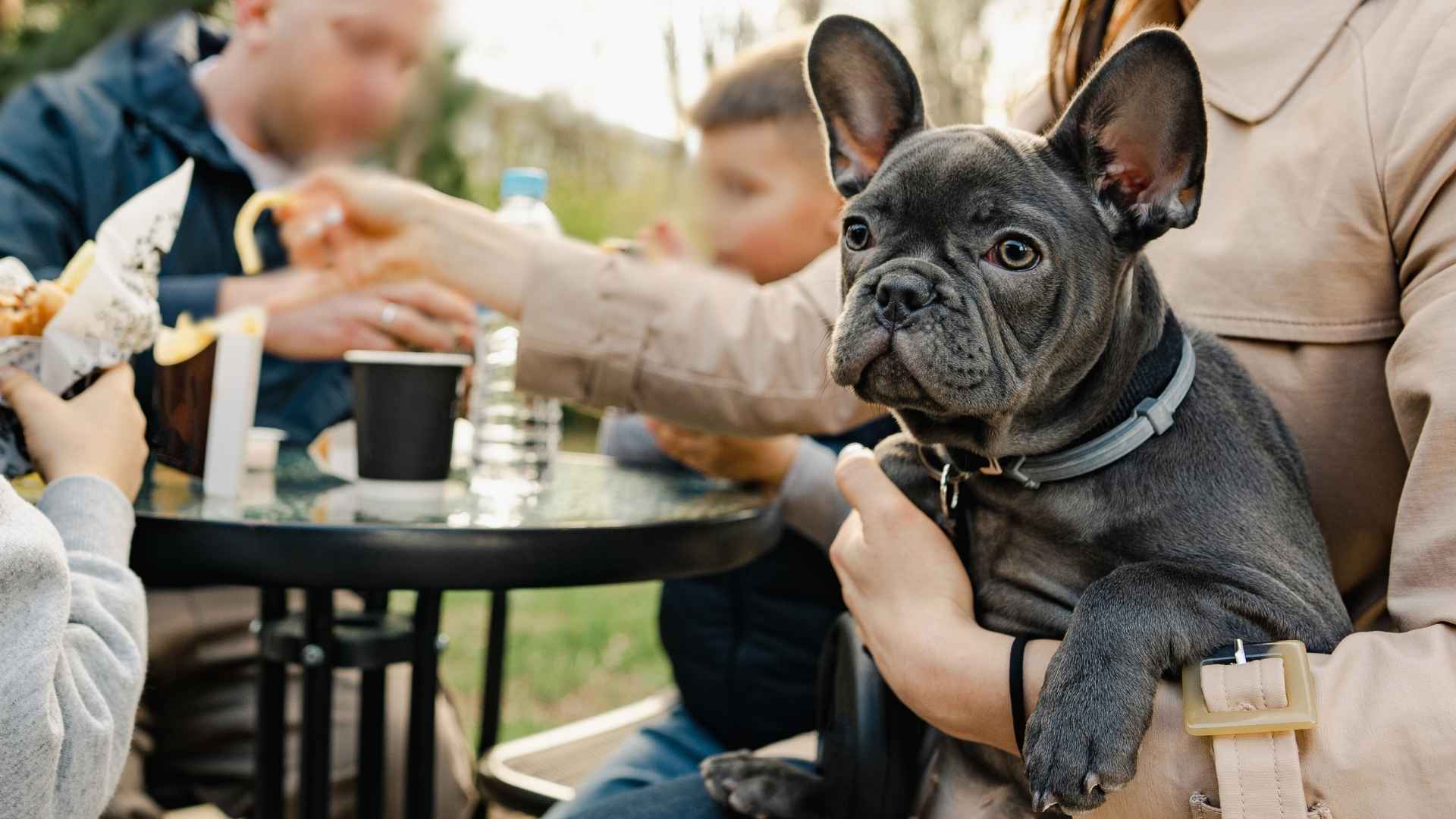Fostering is rewarding, but it isn’t always easy. Dogs arrive with unknown pasts, uncertain behaviors, and varying needs. Some fit into family life quickly, while others take time and patience.
For foster families, the challenge often lies in matching the right breed to the household environment. The wrong fit can create stress for both the family and the dog. But the right fit makes the journey smoother, with bonds forming naturally and routines falling into place.
Certain breeds are known for handling transitions well, making them reliable choices for foster families who want to provide stability and love.
In this article, we’ll highlight the best dog breeds for foster families, focusing on those that are adaptable, affectionate, and resilient enough to thrive during temporary stays.
Best Dog Breeds For Foster Families
1. Cavalier King Charles Spaniel
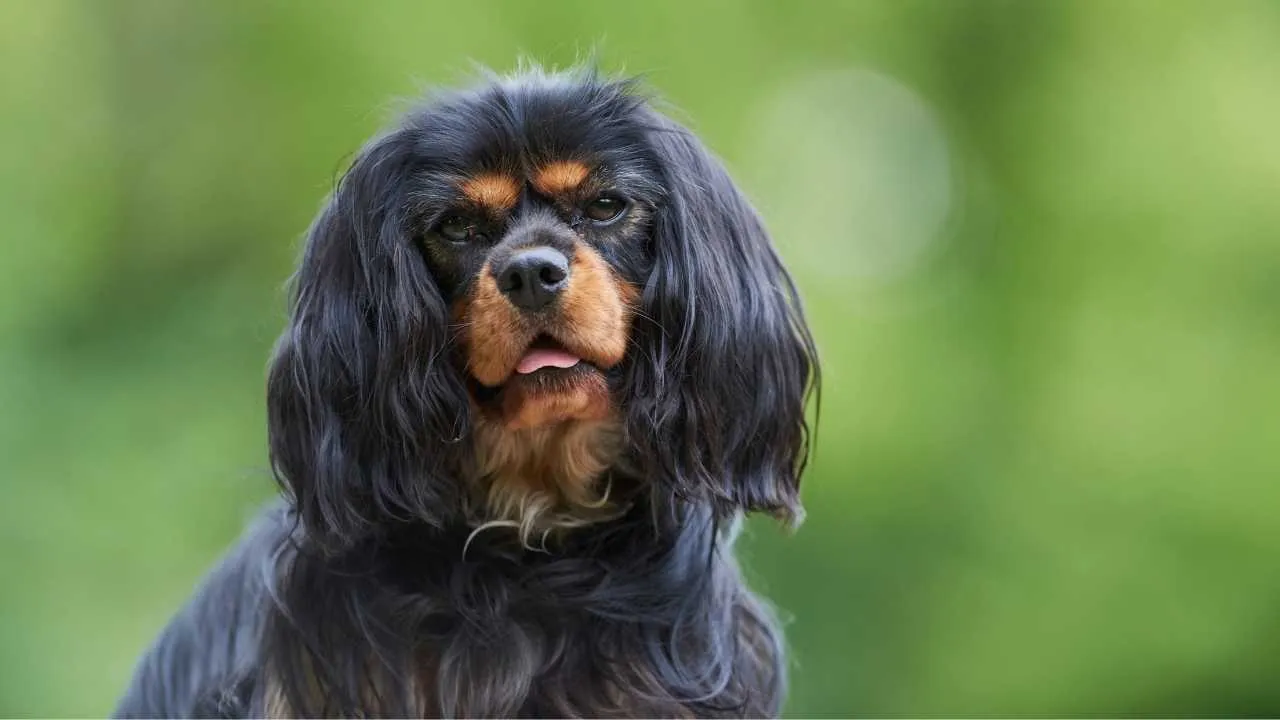
This breed adjusts smoothly to different living environments, making transitions between homes less stressful. Their gentle nature helps children and adults feel at ease. In foster care settings, they often create a calming presence during uncertain times.
Compact and Manageable Size
At 12 to 13 inches tall and weighing between 13 to 18 pounds, they fall into the group of small dogs ideal for apartment or family living. With little size difference between males and females, they remain easy to handle. This makes them practical for families fostering for the first time.
Personality That Connects
Cavaliers are playful, affectionate, and thrive on interaction, which fits perfectly in foster family settings. Their tendency to form bonds quickly helps them transition smoothly from one household to another. They are eager participants in games, cuddles, and companionship.
A Foster Family Favorite
Animal shelters often recommend them to households seeking a reliable pet dog for temporary or long-term care. Their adaptability, gentle personality, and approachable size make them easy to integrate into busy homes. Families find them equally suited to children, seniors, or multi-pet households.
2. Havanese

Families fostering shelter dogs often look for breeds that adjust quickly to changing environments. The Havanese has a calm nature that makes it easy to introduce into homes with children, seniors, or other pets. Their ability to settle into apartment living or even RV travel adds flexibility for temporary caregivers.
Affectionate Temperament
A dog lover will appreciate how this breed thrives on constant companionship, offering affection without being overwhelming. Because they dislike being left alone for long periods, they fit best with households where someone is usually present.
Social Harmony
The Havanese is highly rated for friendliness, which matters when a dog owner fosters multiple pets at once. They tend to bond with both people and animals, showing little aggression in shared spaces. This quality creates a smoother transition period for foster families managing different temperaments.
Manageable Energy Needs
Their exercise requirements are moderate, making daily walks and indoor play sufficient. They’re active enough to engage children but not demanding for households with varied schedules. Key traits include:
High affection and kid-friendliness
Strong trainability for household manners
Playful personality balanced with medium energy
3. Pug
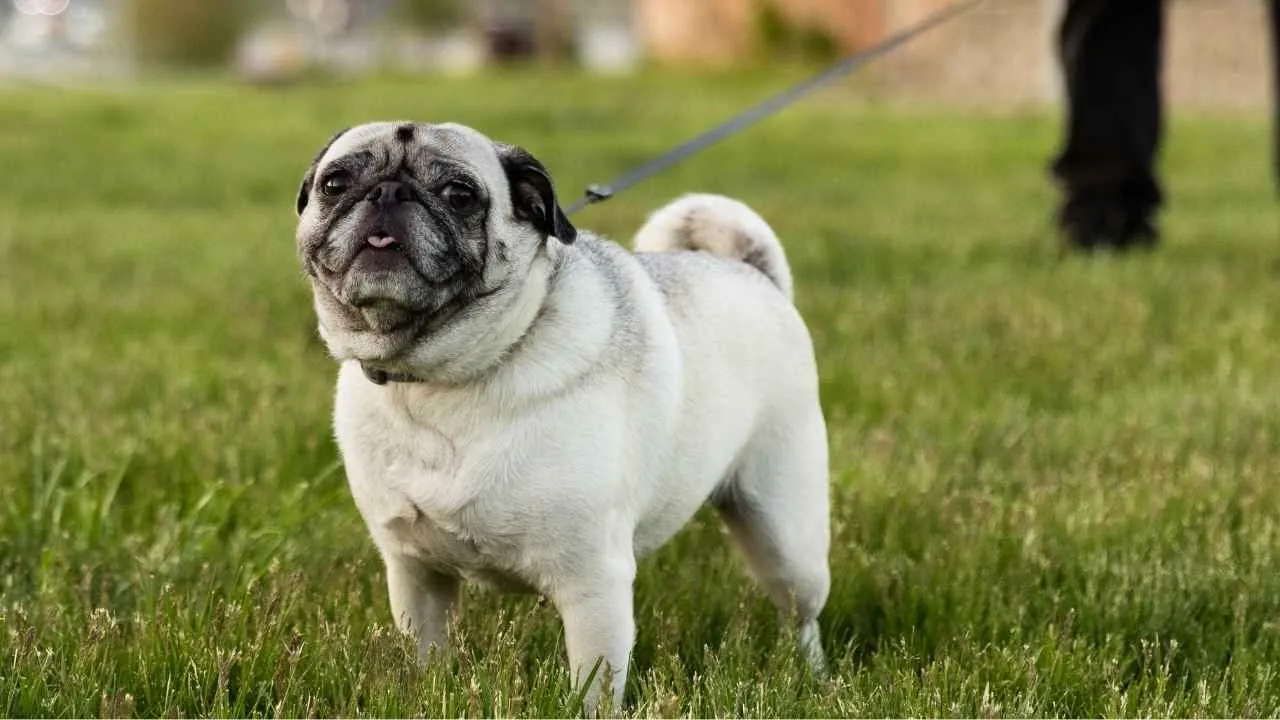
The Pug may be small in stature, but the breed carries a bold and lively spirit that quickly fills any home. Their motto, multum in parvo, meaning “a lot in a little,” captures the way their personality overflows despite their compact size, as Greencross Vets highlighted. Families often find their playful nature perfect for easing transitions in a foster environment.
Everyday Companionship
These dogs love to be present in daily routines, whether it is curling up during a movie or following their humans on short walks. Their eagerness to stay close makes them feel like a true family member, offering comfort and consistency to children or adults adjusting to a new home dynamic.
Living With a Pug
Adapt well to apartments or smaller homes.
Rarely excessive barkers, making them easy to manage indoors.
Known for distinctive snorts and grunts that bring laughter to the household.
Training and Temperament
Intelligent yet often stubborn, Pugs need patient guidance to learn basic manners. While they are not bred for tasks like retrieving or guarding, their natural alertness still makes them a watchful presence. With gentle correction and rewards, they respond best to positive reinforcement.
4. Shih Tzu
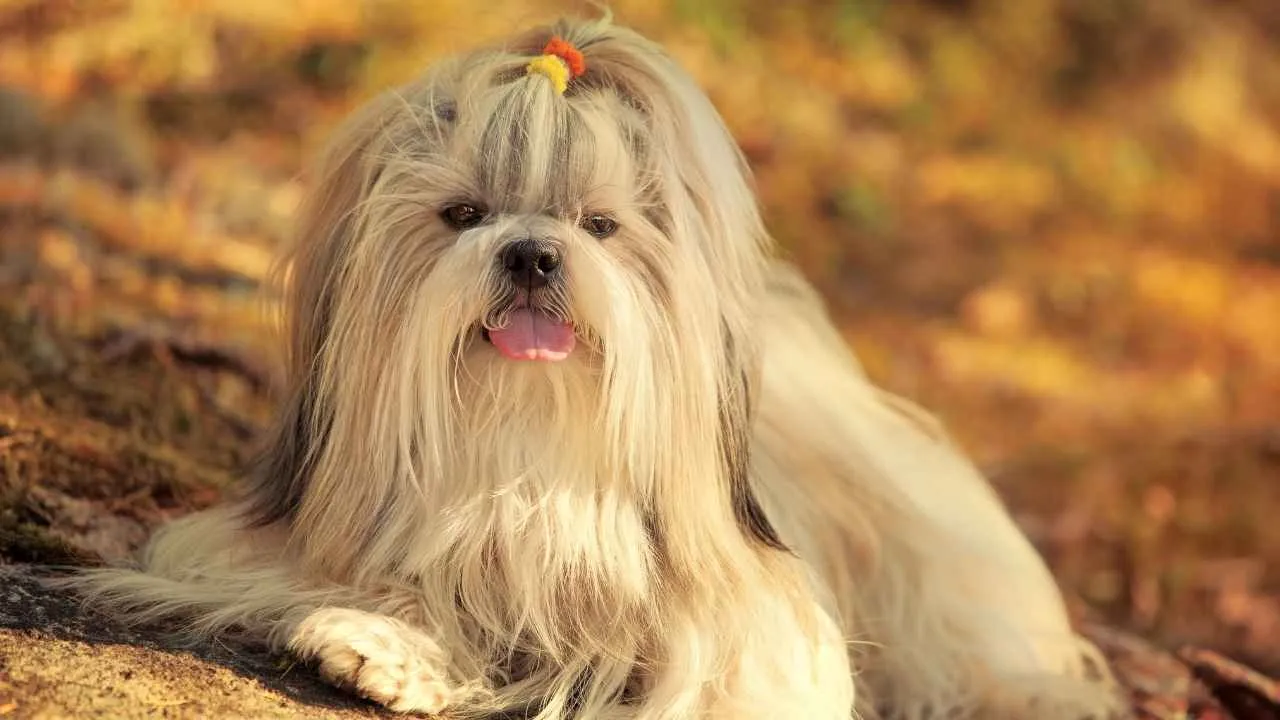
The Shih Tzu has a long history as a house companion, with roots in Tibetan and Chinese palaces. Their role was to offer affection and calm presence, making them reliable for homes where children need a steady, gentle friend. Their size also allows them to adapt well to smaller spaces.
Family-Friendly Qualities
These little dogs are sturdy despite their toy status, often weighing between 9 and 16 pounds. They enjoy playful interaction without becoming overwhelming for kids or elderly family members. Their affectionate behavior has made them a great family dog across generations.
Easy Integration with Others
Shih Tzus often get along well with other dogs, especially when introduced gradually, as PetMD claims. For foster families, this quality can ease transitions when different pets come and go. Compared to many other breeds, their sociable personality makes them less prone to territorial disputes.
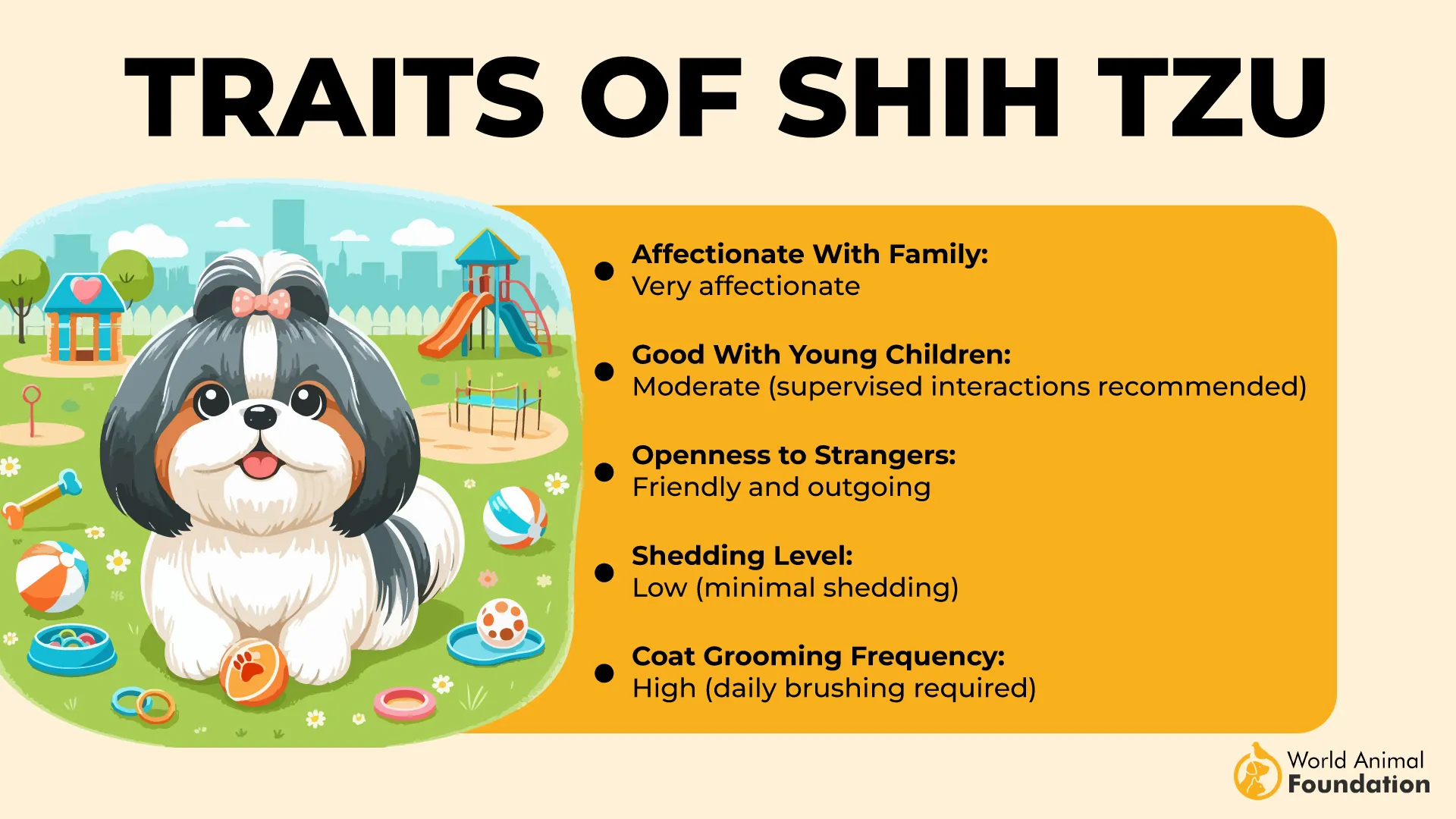
Care and Personality Balance
While they carry a long, flowing coat that requires grooming, their temperament remains adaptable and affectionate. Families appreciate their sharp alert bark that signals visitors while avoiding excessive aggression. Their cheerful energy helps them form bonds quickly with new caregivers.
5. Boston Terrier
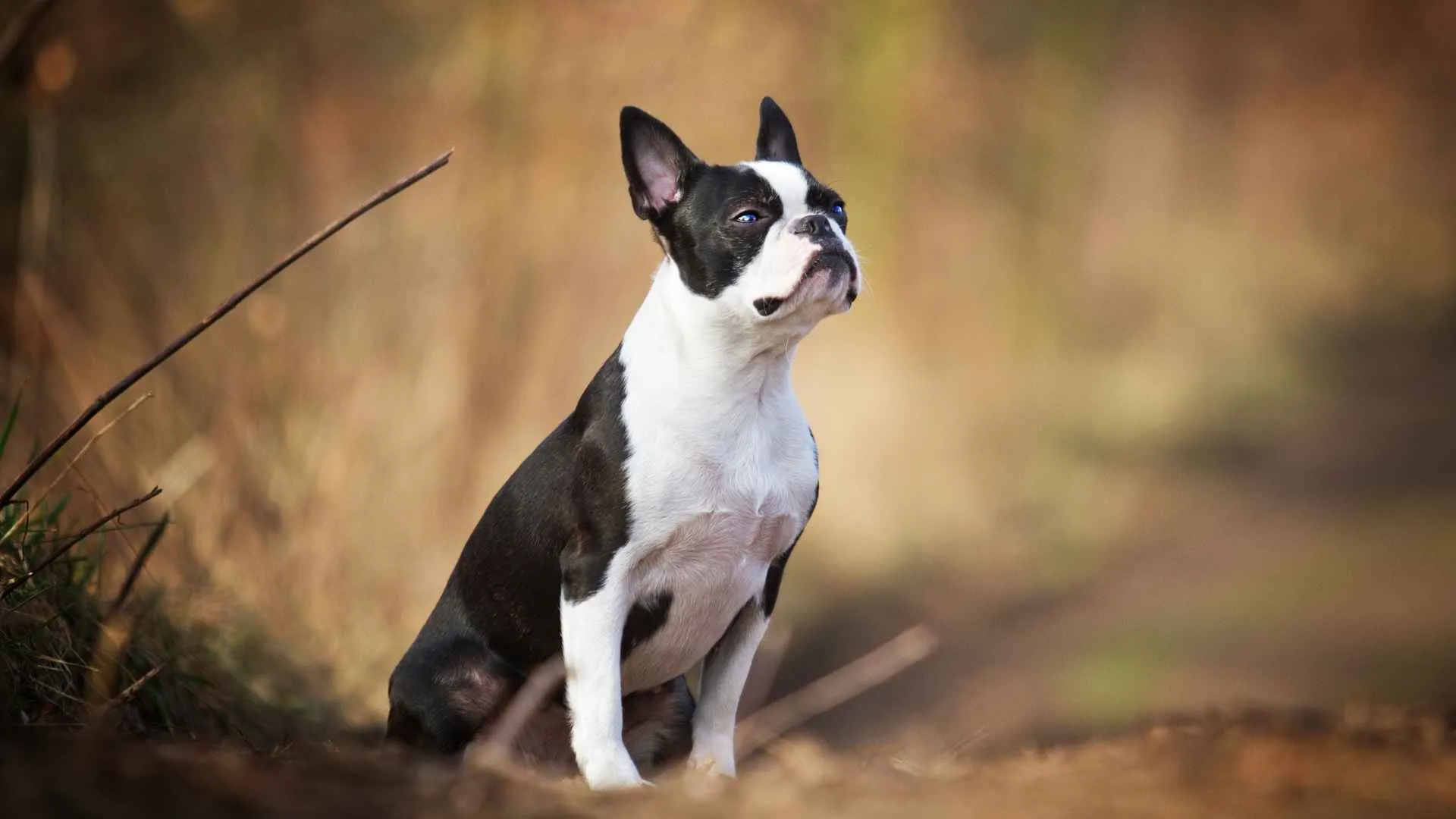
Boston Terriers adjust well to new settings, making them a steady choice for foster homes that may welcome different dogs over time. Their compact size keeps them manageable indoors, while their alertness ensures they stay engaged with household activity.
Gentle With Children
Their polite and steady temperament has earned them the nickname “American gentleman,” a quality that benefits homes with small children. They rarely show aggression when handled properly, which makes supervision less stressful for foster caregivers.
Energy That Fits Family Life
These dogs enjoy play but don’t demand excessive exercise, giving them flexibility across living spaces. They’re content with consistent activity such as short walks or indoor play sessions, which makes them suitable for both apartments and larger homes.

They often mirror their family’s energy.
They thrive with structure and attention.
They fit easily into the routines of active families.
Social and Engaged
Boston Terriers tend to be enthusiastic participants in whatever their household is doing, whether lounging during quiet hours or joining outdoor play. Their outgoing nature builds quick bonds, helping them connect with each new pet parent during the fostering process.
6. French Bulldog
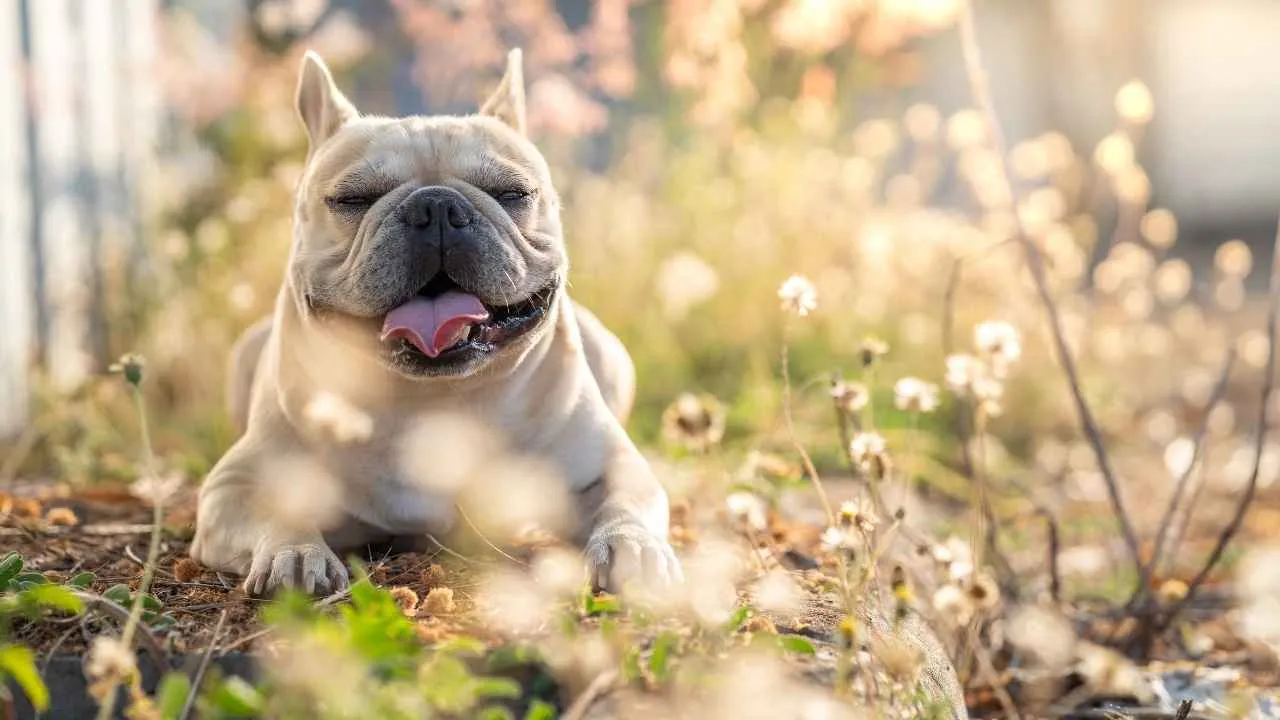
French Bulldogs are often chosen as the right dog for foster families because of their easygoing and affectionate personalities. They settle comfortably into new spaces without much stress, which makes transitions smoother for households that welcome different pets over time.
Balanced Temperament
Frenchies are compact, small dogs with a short muzzle, broad chest, and signature bat-like ears. Standing just 11–13 inches tall and weighing under 28 pounds, they remain sturdy yet manageable for children to handle. Their bright personality and relaxed nature help them bond quickly with family members.
Family Integration
These dogs are great for homes where routine changes frequently. They stay calm during busy family schedules and can thrive in apartments or houses alike. Their low exercise demands make them easier to fit into a family’s lifestyle compared to more demanding breeds.
Everyday Care Needs
Caring for a French Bulldog requires attention to their breathing and skin folds, but they usually adapt well to short walks and indoor play. Foster families benefit from a breed that doesn’t demand hours of physical activity, while still providing warmth and cheerful companionship.
7. Boxer
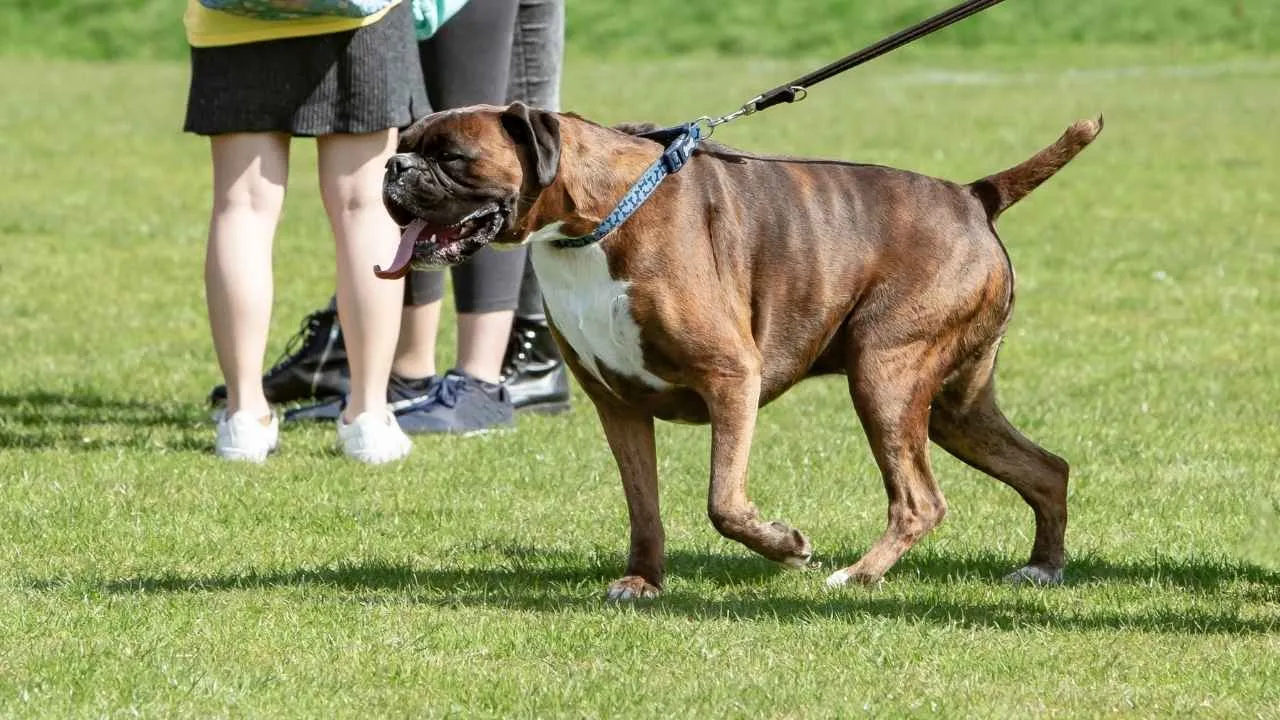
Boxers are known for their constant enthusiasm, which can bring life to households with children. Their playful character balances their strong frame, making them approachable and affectionate despite their muscular build. Families quickly see their silly side once they settle in.
Bond With Children
This breed has an intense devotion to people and thrives when surrounded by family. The boxer dog loves their humans more than anything, and that includes children, which makes them an easy fit for foster environments. They flourish when given attention and involvement in daily routines.
Training and Structure
Early guidance helps channel their energy in ways that benefit family life.
Socialization prevents rough play from becoming overwhelming.
Training curbs the habit of jumping on visitors.
Consistent routines create predictability for both dog and children.
Care and Management
Boxers need owners who can manage their stamina through exercise and mental engagement. Their short coat and flat muzzle require supervision in extreme weather, since they don’t handle heat or cold well. With thoughtful care, they remain healthy and comfortable in family settings.
8. Toy Poodle
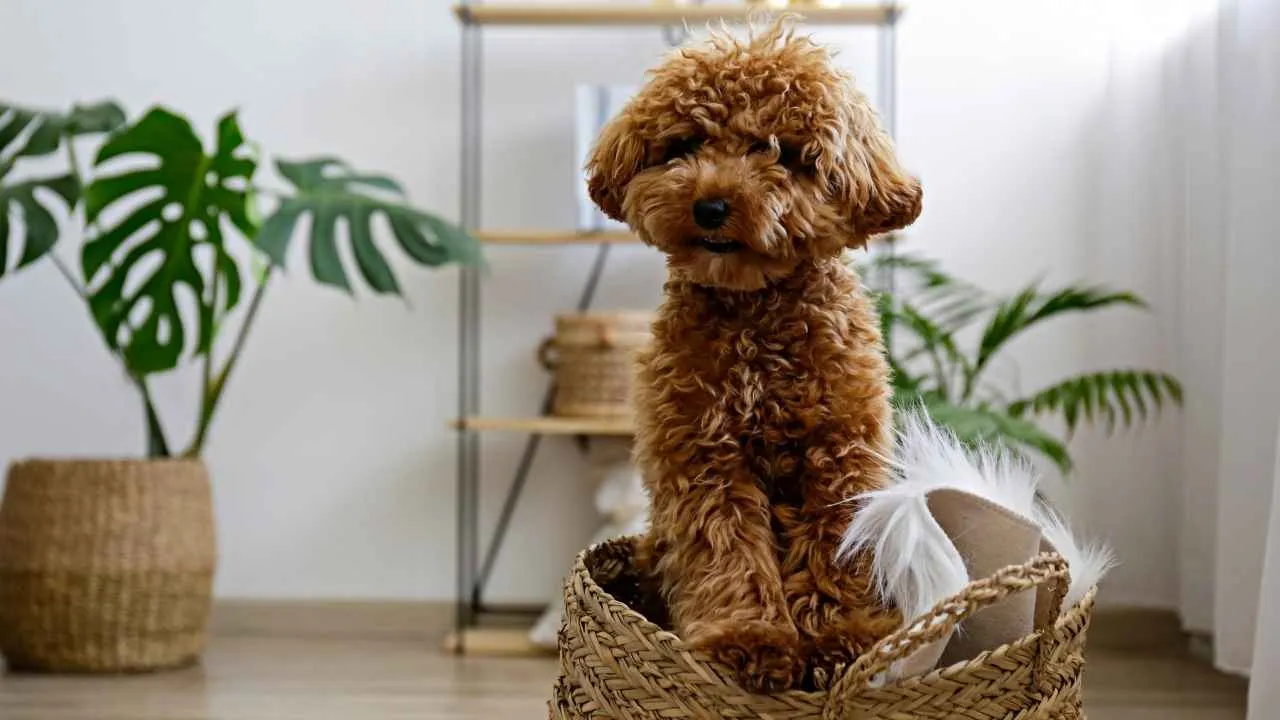
The Toy Poodle adjusts well to household routines, making them an easy fit for foster families who may experience changes in daily life. Their small size helps them feel comfortable in both apartments and larger homes, and they quickly learn the dynamics of their environment.
Affectionate Companions
These dogs thrive on companionship and prefer to be surrounded by their people throughout the day. They are a fabulous choice for families with older children, where their affectionate and intuitive personality shines. Without regular company, they can develop separation anxiety.
Engaging and Playful Nature
Poodles enjoy staying active and joining in family activities, often entertaining the household with their tricks and playful behavior. Some of the qualities that make them especially suitable include:
Natural eagerness to please
High intelligence for training and games
Strong bonds formed with caregivers
Emotional Sensitivity
Known for their ability to pick up on moods, Toy Poodles provide comfort during transitions, which can be important in foster homes. They respond well to encouragement and patience, allowing children to feel included in their care and interactions.
9. Maltese
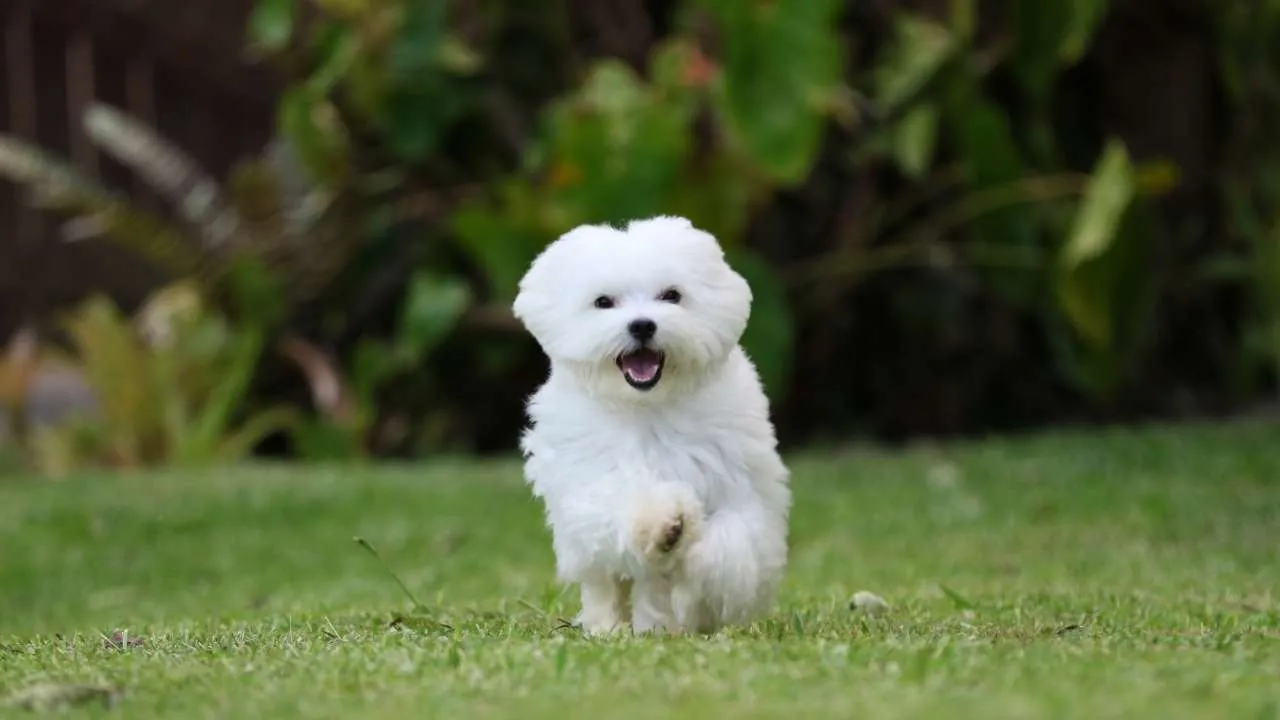
Families fostering young children often find the Maltese adaptable and affectionate. It thrives on being close to people, offering companionship during transitions. Its natural sociability helps reduce stress in busy homes and creates an easy bond with new caretakers.
Small Yet Lively
Standing only 5 to 8 inches tall and weighing 4 to 7 pounds, this toy breed carries surprising energy. Described as fearless and vigorous, it often behaves tougher than its size suggests. That confidence can reassure children while still being safe for indoor play.
Social Engagement
This breed enjoys being the center of attention and flourishes when included in daily activities.
Loves being held and snuggled
Responds well to play sessions
Prefers constant companionship over long hours alone
Care and Daily Needs
Its long, silky coat requires daily brushing to prevent matting, making grooming a consistent commitment. The Maltese doesn’t demand strenuous exercise, as a short walk and indoor play suffice. Consistency in housetraining is essential, since small breeds often present a challenge in this area.
Conclusion
For foster families, the best companions are those that bring both comfort and stability. Some trace their past to herding dogs, while others have been valued as rescue dogs in moments of crisis. Their ability to fit in with very young children matters as much as their loyalty to adults.
Among them are naturally intelligent dogs who learn quickly, alongside energetic dogs that brighten busy homes. The history of the only breed once tied to nobility shows how well they adapt in ordinary family life today. Several are even trusted as service dogs, proving their resilience in demanding roles.
Many arrive already house trained, reducing stress for caregivers who welcome different pets over time. Whether calm or occasionally strong-willed, each one remains a reliable furry friend ready to bring warmth to every household that opens its doors.


